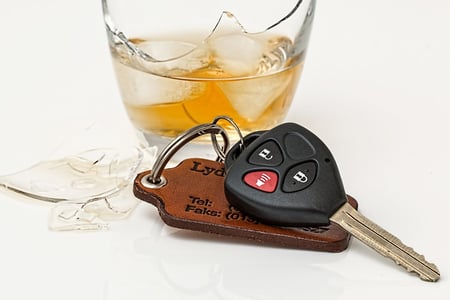OUI law in the United States isn’t all that old. This makes sense seeing as how getting around by car is a modern convenience that most American families couldn’t afford just 50 years ago. This means that much of the local law is evolving with the times.
The breathalyzer was invented in 1953, and officers have been conducting field sobriety tests in all states since the 1960s. While much of the DUI and OUI legislation is similar from state to state, Massachusetts is considered to be pretty strict.
Why OUI Laws Exist
From 2009 until 2018 the CDC reports that 1,243 people were killed in crashes involving Massachusetts drunk drivers. While many of our statistics for drunk-driving related deaths are lower than national averages, the population most at risk from DUI or OUI related death in Massachusetts is residents between 21 and 34 years old.
The federal government has left it to the states to establish their own drunk driving laws. Ever since the 1980s, when groups like Mothers Against Drunk Driving were formed, there has been a lot of pressure on state governments to get tough on drunk driving.
BAC When You’re Pulled Over
If you are arrested for OUI in any state, the police will likely seek to test your Blood Alcohol Content. The nationwide legal limit is .08% for drivers that are 21 years of age or older. That number was established after many years of research and legislation.
If you refuse or fail a chemical test, there are automatic license consequences in Massachusetts. If you fail, your license will immediately be suspended for 30 days. If you refuse, your license will be suspended for at least 180 days, or up to life depending on how many prior offenses you have. If you are under the age of 21, the license suspensions are enhanced based on the Junior Operator law.
Where Do We Rank?
According to WalletHub, Massachusetts ties with Arkansas as the 22nd strictest state for DUI law. They compiled their list based off of a number of factors including:
-
Jail time
-
When a DUI is automatically considered a felony
-
How long prior offenses factor in to repeat offenses
-
Sentencing times
-
And preventative legislation
In the same study, Arizona was named the harshest for DUI penalties because of the jail time they impose. Meanwhile, South Dakota was named the most lenient on drunk drivers because there is no mandatory jail time.
Stricter laws in all states recently have driven down the number of fatalities nationwide, but the numbers are slightly better in the Bay State. From 2007-2016 Massachusetts saw a 27.5% decrease in alcohol-impaired fatalities compared to a national average of 24.7%.
You’re Not Alone
No matter what state you are in, the road ahead after a DUI or OUI arrest is not easy. You don’t have to go at it alone. Contact a lawyer today and start breathing easier knowing that someone with an expert level of experience is helping you.



